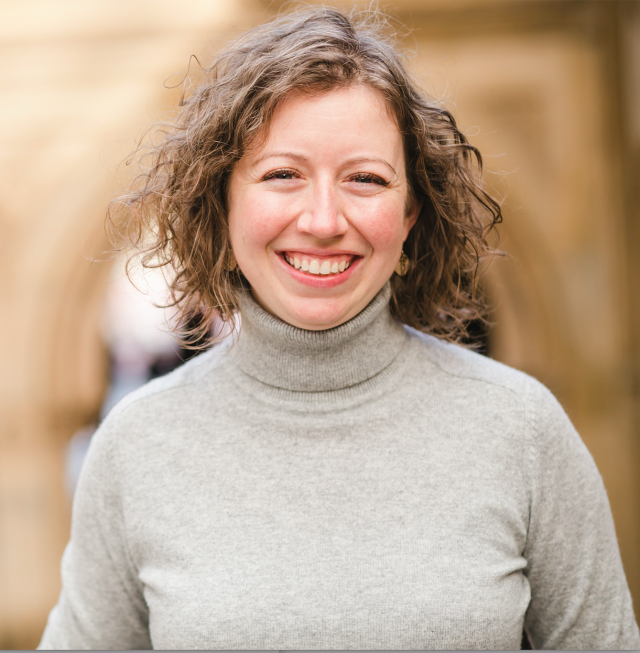Finding a Sense of Belonging
I’ve always wrestled with the story of the prodigal son. I think it’s because I always saw this as one of the most definitively human stories the Bible offers: humankind’s return from exile. The son, we are told, went to a far-off country and spent all he had. This parable invites us to embody this unique human condition as we begin our approach to God.
A person who has never experienced the feeling of being exiled from God and from real life might struggle to understand the primal feeling Jesus invokes here. And a person who is perfectly at home in this world— who has never been wounded by the desire for another reality— may not understand how hard that desire can hit a human heart.
This primal desire for another reality is the feeling of alienation from God, from the joy of communion with Her, from the full life that is created and given by Love. I confess that I have snuck in a chocolate after I gave it up, or missed my prayers, or become angry. But this is quite a different thing from realizing suddenly that I have defiled and lost my spiritual beauty— that I am far away from my real home, my real life, and that something precious and pure has been hopelessly broken in the very texture of my existence. Yet this is precisely what the story points to: the deep desire to return, to go back, to recover that lost home.
I don’t mean the “objective” remuneration of “sins” and “transgressions,” like an act of pleading guilty in court. These loaded words we use in Lent often overlook something essential, without which confession and absolution have no meaning.
When I read this story now, I say to myself, “I received from God wonderful riches; first of all life and the possibility to enjoy it, to fill it with meaning, love and knowledge; then in Baptism, the new life of Christ, the gift of the Holy Spirit, the peace and joy of the eternal life we all share. I received knowledge of God, and in knowing God, I learned about everything else through the lens of love, and that I was a child of God. And all this I have lost, all this I am losing all the time by the deviation from my love of God— preferring a far-off country to the beautiful life meant for us all.”
How many people have accepted the idea that Lent is the time when something that may be good in itself is forbidden, as if God were taking pleasure in torturing us?
This story, and all of Lent, is a return to love— a fight against a broken life, against hatred, injustice, and envy. I try to stay focused, a far cry from the Pharisaic understanding of Lent which prevails today: an inconvenience that, if we voluntarily accept and suffer through it, will put us in good standing with God.
How many people have accepted the idea that Lent is the time when something that may be good in itself is forbidden, as if God were taking pleasure in torturing us? In this story, Jesus instead teaches us to be welcomed home. This love— an uncomfortable, unexplainable recognition that our life can be seriously reprehensible— welcomes us home.
God has always been there, waiting and yearning for us, worried about the burdens we make for ourselves when we have such freedom. One way to think about this is to greet Lent as a spiritual spring, a time of joy and light. Don’t take it for granted; savor the sense of belonging as something more powerful than anything we can do dismantle it.
In closing, my favorite way to begin the day is with this poem, written by John O’Dohnanue who owns up to the prodigal son in each of us. This was also read aloud and quoted by the indelible Dr. Catherine Meeks at this year’s Scene and Unseen conference:
May my mind come alive today
To the invisible geography
That invites me to new frontiers,
To break the dead shell of yesterdays,
To risk being disturbed and changed.
May I have the courage today
To live the life that I would love,
To postpone my dream no longer
But do at least what I came here for
And waste my heart on fear no more.
Find your way home this week by reading to children in a Brooklyn mother & child home on Tuesday nights at 6:00pm. Savor a sense of belonging as you eat, read books, and spend time with families in the shelter’s recently renovated library. Email us for more details.
Mandy oversees Trinity’s Brown Bag Lunch Ministry and coordinates social outreach for Justice & Reconciliation. She graduated from Lenoir-Rhyne University where she studied Human and Community Services with a Family Ministry Certificate. Mandy was also an inaugural NYC Civic Corps member and worked in the Bronx as an AmeriCorps VISTA fellow.
Each Sunday in Lent, Trinity staff and community members are offering personal takes on the intersection of faith and social justice action. Check back each week for insights into how you can get inspired, involved, and make a difference this Lenten season—and beyond!
March 31 Readings: Joshua 5:9-12, Psalm 32, 2 Corinthians 5:16-21, Luke 15:1-3, 11b-32






